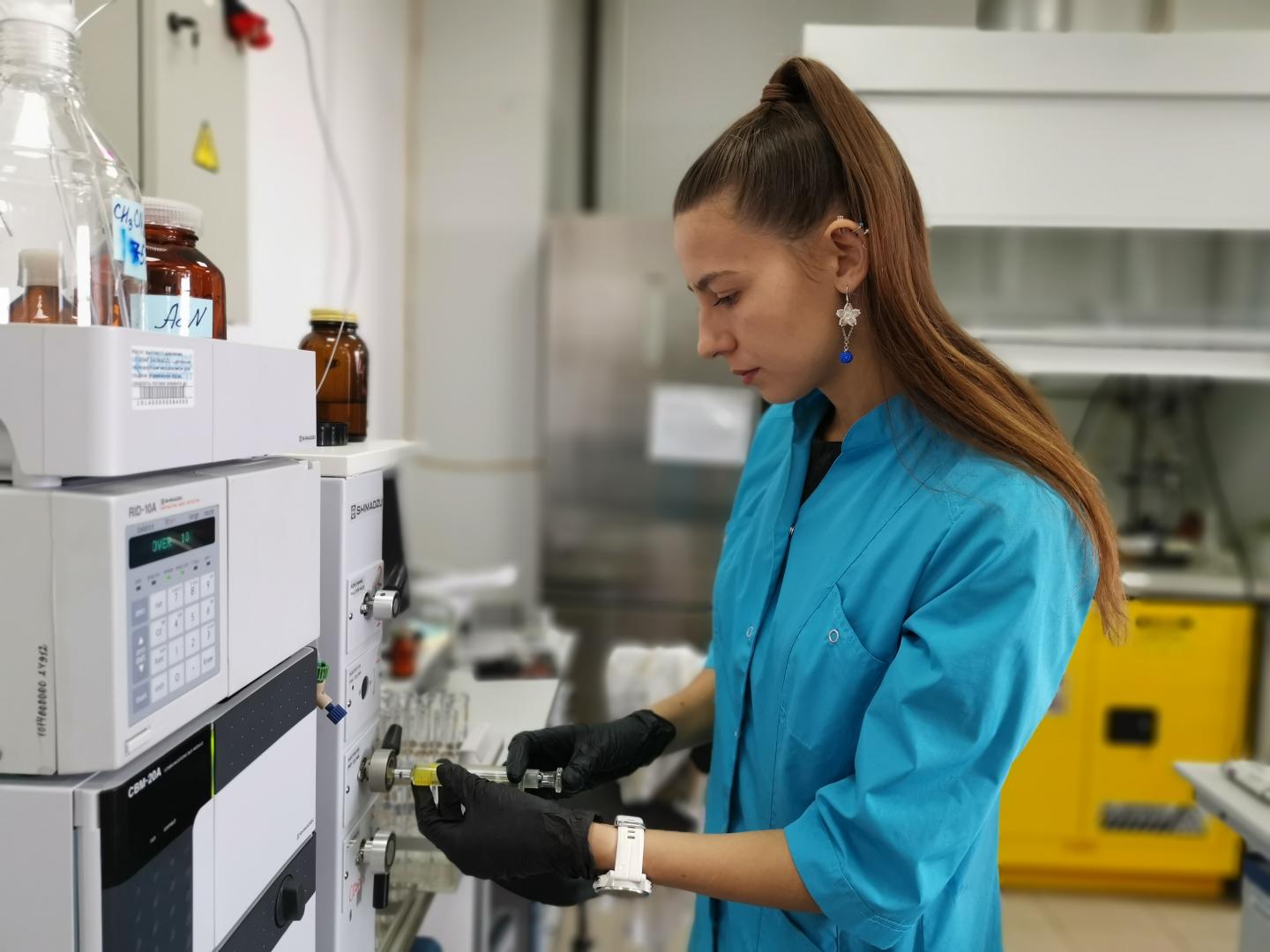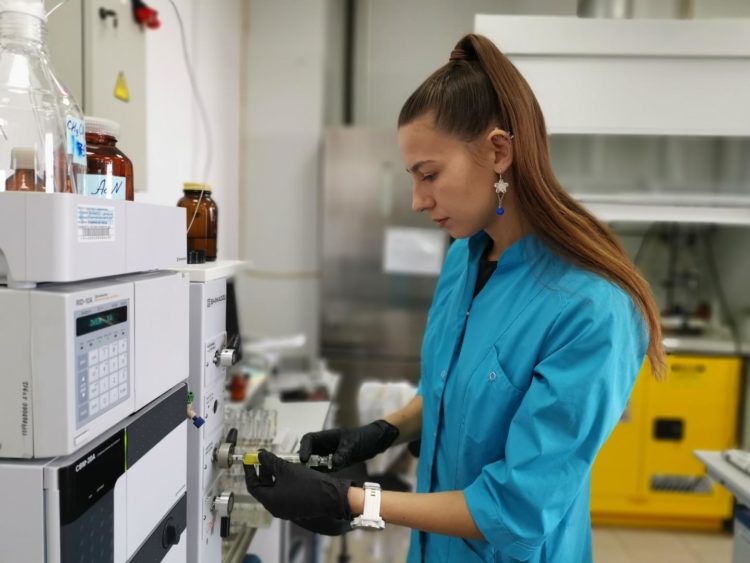
Credit: FEFU press office
Chemists from Far Eastern Federal University’s School of Natural Sciences (SNS FEFU) developed a new method to synthesize biologically active derivatives of fascaplysin — cytotoxic pigment of a sea sponge. For the first time, they got a sufficient amount of 3-bromofascaplysin and 3,10-dibromofascaplysin, which were known before but were not available for study. Basing on these compounds, scientists synthesized 14-bromoreticulatate and 14-bromoreticulatine — the derivatives of the reticulatine alkaloids. The resulting article is published in Marine Drugs.
The joint study of scientists from the Far Eastern branch of the Russian Academy of Sciences and University Medical Center Hamburg-Eppendorf has shown that 14-bromoreticulatine — obtained for the first time in FEFU — selectively affects Pseudomonas Aeruginosa bacterium, resistant to many types of antibiotics. Also, the new compound has a moderate cytotoxic activity resulting in the death of skin cancer, rectal cancer, and prostate cancer cells.
3,10-Dibromofascaplysin can suppress human prostate cancer cell’s metabolism at sevenfold lower concentrations than those that lead to their cell membranes destruction. The substance has a wide range of potential applications to selective treatment of malignant tumor, without an adverse effect on the healthy cells.
«It is important that due to the modification of the original alkaloid structure, we were able to register the variety of its mechanisms of action at greatly different concentrations. This opens up possibilities to create new antitumor drugs with selective action based on fascaplysin. Modern anti-cancer drugs have this important property implemented not sufficiently — it determines their high toxicity for the organism as a whole. Next drug generation will not affect the patients’ quality of life that bad”, said Maxim Zhidkov one of the authors of the study, associate professor of organic chemistry in SNS FEFU.
The author refined that it is too early to talk about the developing of a new drug. Scientists hope to synthesize a new series of fascaplysin derivatives based on the results of the study and to test their action in mice. The results of prospective experiments will reveal how close the researchers came to a new effective drug.
The vast part of the research related to the synthesis of target compounds was carried out by Polina Smirnova — a Ph.D. student of the Department of organic chemistry in SNS FEFU. Scientists from G.B. Elyakov Pacific Institute of Bioorganic Chemistry of the Far Eastern Branch of the Russian Academy of Sciences, Federal Scientific Center of the East Asia Terrestrial Biodiversity of the Far Eastern Branch of the Russian Academy of Sciences and University Medical Center Hamburg-Eppendorf are among other participants of the study.
Fascaplysin was first extracted from the sea sponge Fascaplysinopsis sp. in 1988 and has been intensively studied ever since. This compound has a wide range of biological activity — it strongly suppresses the growth of various types of tumor cells and has antibacterial, antifungal and even analgesic effects. However, the fascaplysin’s high toxicity to healthy cells limits its use as a drug.
Earlier, FEFU scientists have shown that fascaplysin derivatives stimulate the death of glioblastoma multiforme cells — the most aggressive type of brain cancer.
###
The study was supported by the FEFU Foundation grant No D-349-17.
Media Contact
Alexander Zverev
[email protected]
Related Journal Article
http://dx.





